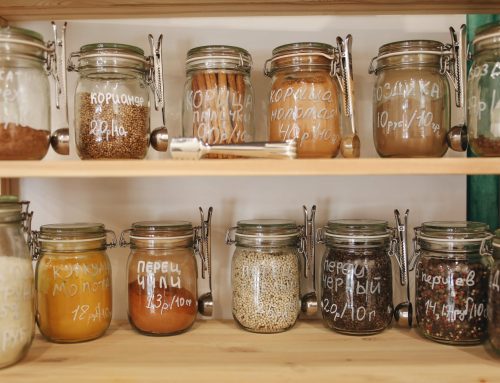Winter can be a challenging season for many people, with its shorter days and colder temperatures. If you find yourself feeling down or experiencing a lack of motivation during the winter months, you may be experiencing the “Winter blues.” But don’t worry, there are things you can do to help yourself feel better and prepare for the arrival of spring.

Photo Cred: Andre Furtado
- Get Outside: One of the best ways to combat the Winter blues is to spend time outside, even if it’s just for a few minutes each day. Exposure to natural light can help regulate your circadian rhythms and improve your mood. Bundle up and go for a walk or just sit outside for a bit.
- Practice Mindfulness: Mindfulness practices, such as meditation or yoga, can help you stay present and calm during the winter months. Set aside some time each day to practice mindfulness, whether it’s just a few minutes of deep breathing or a longer yoga session.
- Stay Social: Winter can be isolating, but it’s important to stay connected with others. Make plans with friends or family members, join a club or organisation, or volunteer in your community. Socialising can help you feel more connected and supported, which can improve your mood.
- Exercise: Exercise is a natural mood booster and can help you stay energised and motivated during the winter months. Even if you can’t get to a gym, there are plenty of exercises you can do at home, such as yoga, bodyweight exercises, or cardio workouts.
- Plan for Spring: Look ahead to spring and make plans for things you want to do when the weather improves. Maybe you want to go on a hike, plan a picnic, or start a garden. Having something to look forward to can help you stay positive and motivated.
- Seek Professional Help: If you’re struggling with the Winter blues or experiencing symptoms of depression, don’t hesitate to seek professional help. A mental health professional can help you develop coping strategies and provide support and guidance.
Remember, it’s normal to feel down or unmotivated during the winter months, but there are things you can do to help yourself feel better. By taking care of yourself and staying connected with others, you can prepare yourself for the arrival of spring and enjoy the warmer weather to come.

Photo Cred: Alex Green
If you feel you are in need of additional professional care please reach out, we have created a great list of resources available to those in British Columbia – don’t suffer in silence.
- BC Mental Health and Substance Use Services: This organization provides a wide range of mental health and substance use services, including access to specialized clinics, support groups, and educational resources. They also offer a crisis line for those in need of immediate support.
- Mental Health Support Line: This free, confidential telephone service is available 24/7 and provides emotional support, information, and resources to people in British Columbia. The line is staffed by trained and experienced mental health professionals.
- Here to Help: This website provides information on a variety of mental health and substance use issues, including depression, anxiety, and addiction. It also offers self-help resources and tools, as well as access to mental health professionals and services.
- Crisis Intervention and Suicide Prevention Centre of BC: This organization offers a 24/7 crisis line for people in need of immediate emotional support. They also provide resources and referrals for ongoing mental health care.
- Foundry BC: This organisation provides integrated health and wellness services to young people aged 12-24 across British Columbia. Their services include mental health and substance use support, primary care, and social services.
- MindHealthBC: This online resource provides information and self-help tools for a variety of mental health concerns, including anxiety, depression, and stress. It also offers a directory of mental health services and professionals across British Columbia.
- Canadian Mental Health Association (CMHA) BC Division: This organization provides a variety of mental health services, including peer support, counselling, and education. They also offer resources and referrals for mental health care in British Columbia.
These are just a few of the mental health resources available in British Columbia. If you are experiencing a mental health crisis or need immediate support, please call 911 or go to your nearest emergency department.







Leave A Comment